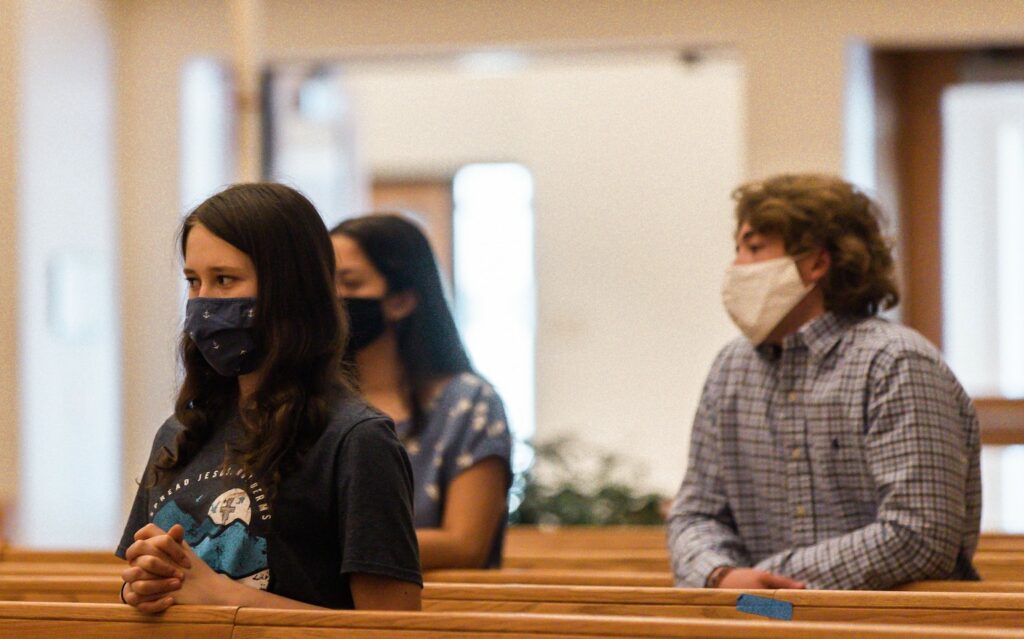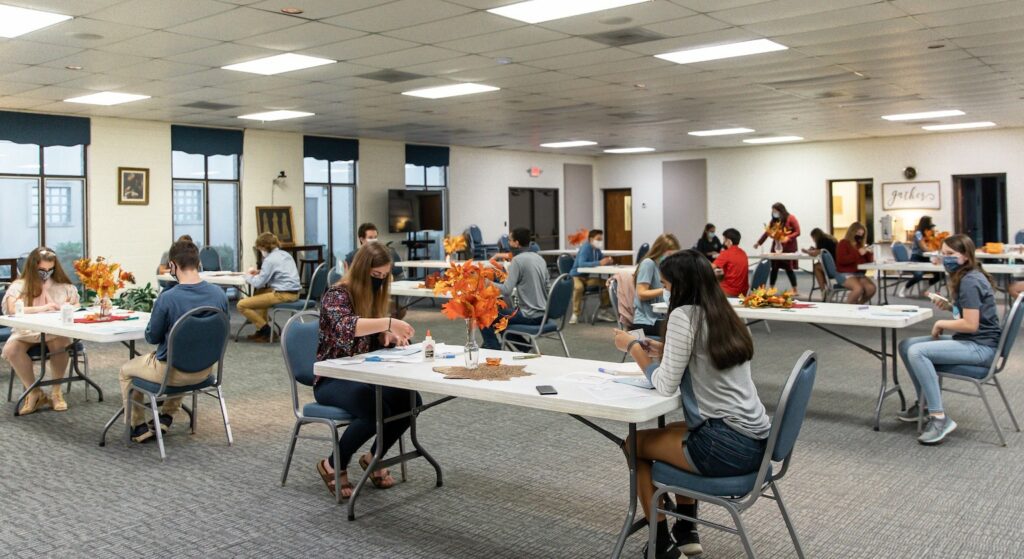Topics, languages reflect diversity of diocese
A variety of nationally known speakers prepared more than a dozen online and live presentations on the bicentennial themes of communion and mission for the Diocese of Richmond’s first Eucharistic Congress, held Nov. 6 and 7, 2020. Presentations were offered in Spanish, English and Vietnamese languages to accommodate the diversity of the diocese.
Live online discussion sessions via Zoom were held on Saturday afternoon on each of the speaker’s presentations.
Also available were program tracks for persons with disabilities, youth and children, who learned, among other activities, how to sign “We Shine Like Stars in the World,” the title of the bicentennial hymn, in American Sign Language.
Informational videos throughout the weekend highlighted diocesan history, Catholic schools and Catholic campus ministries, among other topics.
‘Fruits of the Eucharist’
Chika Anyanwu, an evangelist, contributor to Life Teen and Ydisciple, and author of “My Encounter: How I Met Jesus in Prayer,” spoke on “The Fruits of the Eucharist,” noting that when we receive the Eucharist, we are united with Christ.”
She read the story of the loaves and fishes from John 6, adding, “God knows that we need this food. We will always hunger for more, and Jesus says, ‘It is I that you hunger for.’ The desire to be loved, seen, noticed, held – all of those things are truly our desire for Jesus.”
She mentioned the “God-shaped hole in our hearts” that can be filled only with God himself, and said that when we receive the Eucharist we receive him. “The Lord wants to be in relationship with us, so close that we are one,” she said.
When the faithful receive the Eucharist, they become living tabernacles to go out into the world: “We can be Him. When other people see us, they see Jesus in us. Truly, that’s the definition of being a Christian.”
The Eucharist unites Catholics with Christ and also with each other, she noted, even when they receive the Eucharist in spiritual communion, as many do during these days of pandemic restrictions.
“The Eucharist is a mystery,” she said. “We cannot place Jesus in a box and say that we know everything. But in his kindness, he has revealed himself to us. So keep learning, keep praying, keep being in relationship with Jesus, and let him surprise you.”

‘We’ve Come This Far By Faith’
The title of the presentation by Dr. C. Vanessa White comes from the hymn of the same name: “We’ve Come This Far By Faith.” By allowing the “sweet Holy Spirit to transform,” she said, better lives are possible for all Catholics, especially those most in need.
White is associate professor of spirituality and ministry at Catholic Theological Union in Chicago, author, and advisor for the U.S. Conference of Catholic Bishops’ subcommittee on Certification for Ecclesial Ministry and Service.
“Communion with Christ’s body and blood commits us to communion with all persons, in particular with the poorest, weakest ones,” she said, noting especially the growing number of children who are poor.
“We as Catholic Christians must by our words and our actions care for and advocate for the weakest in our communities. We must truly believe that if one of us suffers, we all suffer.”
White cited several Church documents, including “Open Wide Our Hearts: The Enduring Call to Love, A Pastoral Letter Against Racism,” from the USCCB. That 2018 letter states: “We need to listen to the stories of our brothers and sisters whose lives have been impaired by the systemic racism in our nation and within our Church.”
All Catholics are called to consider who in their communities are most in need of the message of hope and communion, White said, and this means becoming more welcoming and inclusive both in our home parishes and around the world.
“The Eucharist brings the wide variety of Christians from around the world together like different kinds of grain into only one loaf of bread,” she said. “Even amidst these times of pandemic, racial protest and political unrest, we as Catholic Christians are strengthened by our belief in a God who can make a way out of no way and who we experience deep down in our souls.”
‘A Mission of God’s Love’
Sean Callahan, president and CEO of Catholic Relief Services, spoke on “A Mission of God’s Love.” He explained that in Latin, the word “mission” means “to send.”
All Catholics are sent into the world with a mission, he said, and the Eucharist plays a part in that mission.
“The Eucharist fills me with the love of Jesus Christ,” Callahan said. “It provides me with strength, with power, with discernment, and it allows me to feel protected as I go out into this world.”
He cited the Prayer of St. Francis of Assisi (“Lord, make me an instrument of your peace”), which Callahan recalled St. Teresa of Calcutta praying with her missionaries when he worked with her years ago.“
Mother Teresa gave her life for those who had been forgotten by society,” he said. “She would show them love.”
Callahan recounted his experience caring for a nameless man nearing the end of his life at the Center for the Dying, in bed number 34, who was “skin and bones.” He fed the man, one slow spoonful at a time, and cleaned and bathed him.
“His eyes were starting to look at me. He knew there was someone there who cared for him in one of his darkest hours,” he said.
After the man died, Callahan said, “How lucky was I to have been given an opportunity of grace with an individual living halfway around the world from where I grew up, to be with him and give him solace during his final hours?”
He noted the Church’s “active engagement with society” and asked: “What is your mission? How do you show the light of Christ to others? How does the Eucharist strengthen and empower us as believers?”
“Mission is a gift of ourselves to others, inspired by the Holy Spirit,” he said, adding that each person must find his or her own mission or let the Holy Spirit reveal it.
“Jesus came and gave his life for each and every one of us,” Callahan said. “And he has called us to give our lives similarly, in different ways. He is asking each of us to use our skills, to use our compassion, to use our intelligence, to use our smile and our touch to help others.”

